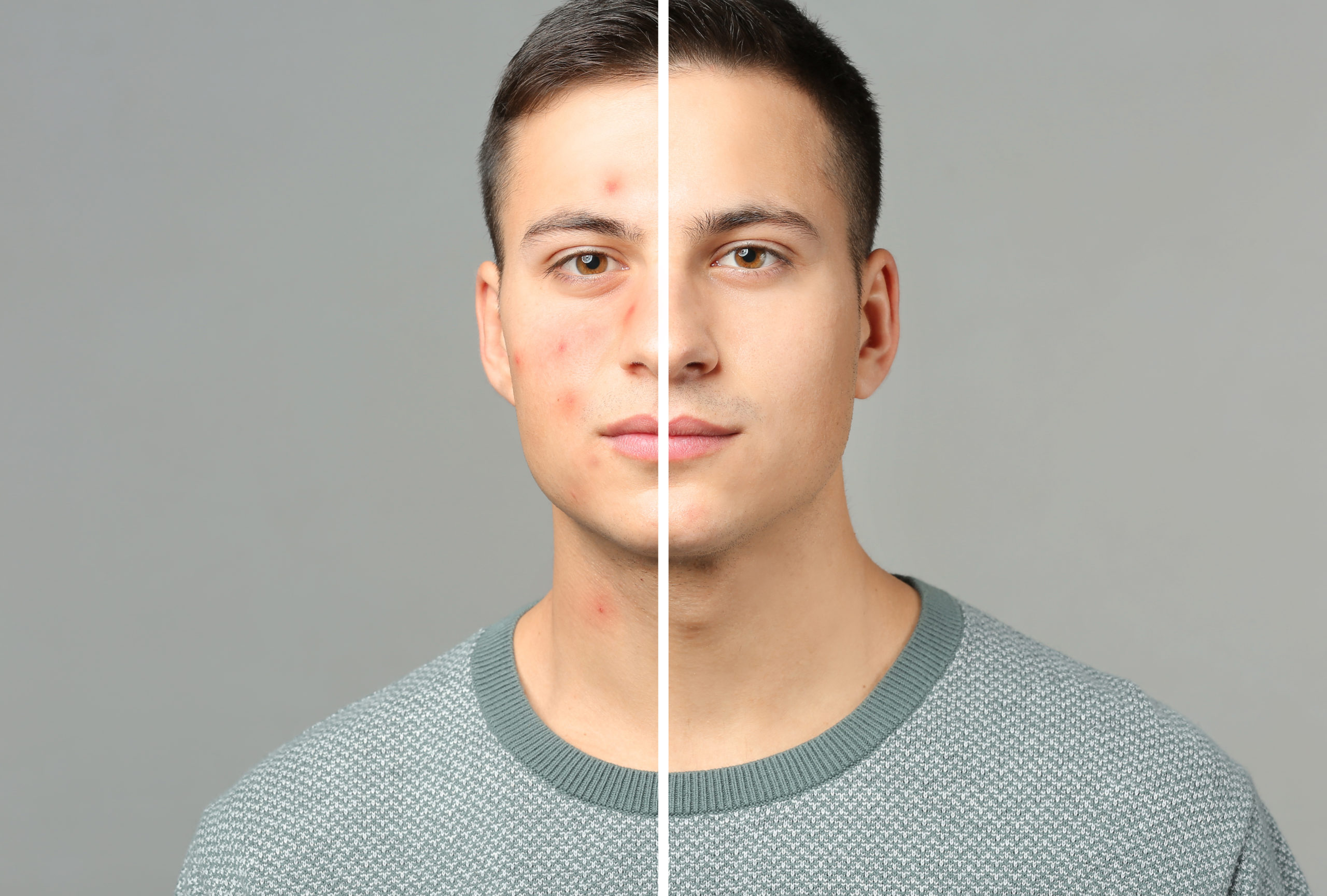Acne has always been a major source of stress for most people. From those experiencing puberty until the late stages of adulthood, many people still experience acne in varying degrees of gravity. Some have occasional one or two pimples every other month, while some experience the shorter end of the stick and suffer from breakouts every now and then. Thus, many people still need cosmetic treatments to address acne when skincare products are insufficient to solve the problem. Religious skincare routines and the addition of cosmetic treatments to maintain your skin’s status to prevent any acne breakouts or worsening of symptoms.
According to dermatologists, there are four kinds of acne that people need to know to address as effectively as possible. Knowing these kinds of acne is helpful for your dermatologist to prescribe the best treatment plan for your acne situation. What are the four different types of acne, and how can we treat them effectively? Learn more in this article.
What is Acne? An Explainer
Acne is a common skin condition that typically happens to everyone, in which the openings of hair follicles become clogged. Once the pores become infected, bacteria can grow there. This infection results in pimples, which are red bumps filled with pus. In severe cases, oil or pus builds up inside the hair flakes, leading to cystic acne. This type of acne can rupture within the skin, causing an infection leading to scarring. Symptoms of acne can be found on the face, upper back, and chest.
You can learn more about acne and how to deal with it. A healthcare provider can diagnose acne by examining the skin and asking questions about stress, family history, and menstrual cycles. A doctor will also want to determine whether you have any underlying disease contributing to your breakouts. However, a dermatologist can help you make the correct diagnosis and recommend an appropriate treatment plan. For more information on how to deal with acne, visit our website.
There are many types of acne. A common form of acne is a whitehead. The more oily your skin is, the more likely you will develop whiteheads and blackheads. A higher percentage of teenagers develop severe acne than adults. It is also common for teenagers to suffer from moderate to severe cases of acne, which will disappear in their early 20s. However, it is important to mention that acne affects people of both sexes, so you do not feel ashamed or embarrassed.The four different types of acne discussed here are papules (pimples), pustules, cystic acne, and nodular acne. We will discuss them in detail and address them effectively to prevent them from getting worse.
How to Deal With Papules and How to Treat Them
The most important thing to do when dealing with papules is to make sure that you wash your face at least twice a day. Always use a gentle cleanser and make sure that you use one suited to your skin type. Apply sunscreen every day and reapply it every two hours. Drink at least two liters of water each day and ensure that you use lukewarm water when washing your face. To reduce inflammation and redness, you can try green tea or honey. This will soothe the affected area and reduce inflammation. You can also apply ice to the affected area to relieve the itching and inflammation. These home remedies are effective in treating papules. But, it is important to choose the right one for your skin type and the severity of the blemish. For those who are sensitive to these ingredients, you should avoid them altogether.
The medical term for a classic pimple is a pustule characterized by a yellowish liquid that consists of dead white blood cells. The infection occurs in a clogged hair follicle. When white blood cells die, the infection is fought, and the pus is released into the skin. The immune system sends white blood cells to fight the infection. The dead white blood cells then accumulate and form a pustule.
Pustules and How to Treat Them
There are several treatments for pustules, including topical medications. The most effective of these are made with salicylic acid, peroxide, or sulfur. It is important to avoid sulfur products if you have skin sensitivity. OTC treatments for pustules generally work by drying the top layer of skin and absorbing excess surface oils. Some of these may cause irritation or peeling of the skin, so it is best to look for specially formulated acne medications. Popping a pustule is not recommended because it can lead to scarring and infection. It will also delay healing and increase the risk of scarring. Therefore, it is better to use on-the-spot medications. The most common types of these medicines are benzoyl peroxide, salicylic acid, and tea tree. Those with a severe infection may need photodynamic therapy.
If you’re experiencing a pustule, you should not pick or squeeze it. This will only make the infection worse and result in more pustules. In addition, you should not use any oil-based skin products on the affected area. If you have an open wound, you should visit a dermatologist. A dermatologist will safely drain the pustule and prescribe stronger medications.
Cystic Acne and How to Treat Them
If you suffer from cystic acne, the most important thing you can do is stop trying to pop it. It will only make it worse and can lead to scarring or infection. Whether it is a whitehead or a blackhead, it is deep and can affect your self-esteem. If you’re experiencing these unpleasant symptoms, you should consider a dermatologist who can provide treatment for cystic acne.
If you can’t find an effective medication to treat your acne, it is best to consult a dermatologist. They can prescribe antibiotics to combat the infection. Additionally, female acne patients may benefit from anti-androgen medications, which block androgen’s effects on sebaceous glands. Some dermatologists also prescribe birth control pills to regulate fluctuations in hormones. Another effective medication for cystic dermatitis is isotretinoin, but it must be monitored for side effects.
The first line of treatment for cystic acne is an oral antibiotic. This antibiotic is tetracycline and has anti-inflammatory properties. It may help reduce acne cyst size. Rifampin is another common option. If none of these methods work, try a combination of the two. For best results, try a low-glycemic diet. You might also want to consider making homemade remedies. They’re not as effective as they sound and irritate skin and clog pores.
Nodule Acne and How to Treat Them
Nodule acne is a serious ailment that can be very difficult. It often starts as a painful pimple or cyst deep and filled with pus and blood. It can stay on your face for weeks or even months. However, it can be very difficult to treat once a nodule appears. Fortunately, there are several treatment options available for nodular acne. Benzoyl peroxide is a common treatment for nodular acne. It comes in topical creams and gels and is a popular treatment. But beware of this treatment as it can bleach your clothes and increase sensitivity to sunlight. A prescription retinoid is another option for nodular acne. These medications are effective at shrinking clogged pores on the skin, reducing the growth of bacteria.
There are also prescription-strength benzoyl peroxide gels and creams that are highly effective in treating nodule acne. However, be warned: these medications may be harsh and can bleach your clothes. A dermatologist may prescribe an oral medication called isotretinoin. This medication is a type of retinoid that decreases the size of oil glands on your skin. When there’s less oil on your skin, bacteria cannot grow, and the blemish will disappear.
Final Thoughts
There are many different types of facial and body acne. Still, these four are the ones that you should pay attention to because if you leave them untreated, they might grow worse and ultimately disfigure your face in the long run. We all know that our face is the first thing people see in us, so we must do our very best to take care of them. Providing them the best quality of attention can stop them from getting worse, and we can still regain the confidence that we need in our everyday lives. Whatever acne you have, you should always get the best quality of treatment that you deserve. You can only get those in legitimate, registered clinics with licensed dermatologists who can help you with a treatment plan to crush them (pun intended) from the roots.
Utah Facial Surgical Arts have a wide variety of treatments perfect for every type of acne you have, from simple pimples to cystic acne. They also offer chemical peels that are perfect for most kinds of acne. They are done professionally and hygienically to prevent infections and complications. With their team of experts, you can regain your lost confidence back.









